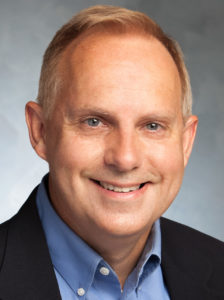Warning: Politics, religion and beagles ahead.
Author’s note: Three years ago this week, on a Sunday morning, I set down these words in a downtown Austin hotel after a white supremacist attacked the Tree of Life synagogue in Pittsburgh. This week, I hear that Neo-Nazis are unfurling anti-Semitic banners in my hometown of Austin on the expressway blocks away from the Jewish Community Center. Blocks away from my house. Having that past and present as context might be useful, but the 2020 election and its aftermath, the ongoing pandemic, and the growing divisions in our nation have made these musings I fear only that much more relevant. I offer them now in the hope that they might be of use.

Greg Garrett
Like, perhaps, many of you, I am in that state that my wife, Jeanie, identifies in me as “fragile.” I am shattered by the violence and terrorism done in America by white nationalists inspired by fear and prejudice, by another mass shooting in a sacred space, and it feels like one touch will reduce me to splinters and dust.
I am not preaching today, a fact for which I find I’m actually grateful. Instead, I’m speaking at the Austin Film Festival. Yesterday afternoon in a panel on the great writer and director Nora Ephron, I asked my AV guy to play the end of Sleepless in Seattle for the crowd in the Driskill Hotel Ballroom.
It felt like some kind of spiritual comfort food: two strangers meet, one holds out his hand, and the two of them walk away together.
Hope instead of fear.
I am not here to lay blame for the state of our nation. I certainly have opinions. But at the end of the day, it is just more Us. v. Them, more “I won’t listen to you because you don’t think like me,” and my blaming adds to the recrimination and separation.
“Yes, we are surrounded by misunderstanding, paranoia, hatred, violence. But instead of naming names, I want to name remedies.”
What I can do is be proactive, preach hope instead of fear. Yes, we are surrounded by misunderstanding, paranoia, hatred, violence. But instead of naming names, I want to name remedies.
In every wisdom tradition I’ve studied — including the ethical atheism championed by Alain de Botton — compassion and hospitality are the traits we are asked to embody. We are told that we are to treat others as we wish to be treated, which, I presume, is with love, gentleness, generosity. In the Gospel of John, we are challenged to love radically, without hope of return, sacrificially, if need be — and this is one of those periods in our history when we need that good spiritual advice at least as much as any political or emotional counsel.
Yes, by all means tend to yourself. But if your self-care starts to stand at cross purposes to your call to love, if you find yourself wanting only to separate and not to seek common ground, then it may be time to ask some hard questions about your actions.

(Photo by Marliese Streefland on Unsplash)
Yesterday evening, I took our beagle, Gracie, for a long walk in our neighborhood, self-care for both of us. Usually when we walk, people call out to us, because she is a beautiful little dog, a purebred beagle who was the runt of her litter, and so is still close to puppy size even though she is fully grown. I was sweating and puffing when a multi-racial group of kids who were playing football in a yard ran out into the street and asked if they could play with Gracie.
There were five of them, four boys and a girl, all around 10 years old. Gracie was nervous; kids are not always generous and hospitable. And I was nervous too, for the same reason.
The tallest one, a blonde boy, asked, “What’s her name?”
“It’s Grace,” I said. “Gracie.”
“She’s beautiful,” he said. “Can we pet her?”
I took a deep breath. Let it out.
“You’ll have to let her get comfortable,” I said. “She’s very tiny, and she gets nervous really easily. She won’t hurt you, and she doesn’t bite. But put your hand out. Let her smell you first.”
Five hands went gently in Grace’s direction. At first, she shied away. But then she sniffed. And licked.
Giggles went up around the circle.
Five hands reached in to pet her. Gracie looked back at me to see what I thought.
“Daddy’s right here,” I told her, and I put my own hand on her flank.
“For a few minutes, the kids laughed and stroked and called her by name, and I actually had to turn away for a second to hide my tears, because that would not have been cool.”
For a few minutes, the kids laughed and stroked and called her by name, and I actually had to turn away for a second to hide my tears, because that would not have been cool.
Adults are supposed to hold it together at least a little, I’m told.
But it felt like a lesson.
It felt like grace.
On my toughest preaching morning ever, I was asked to bring a message of hope and reconciliation at the American Cathedral in Paris for the National Day of Remembrance. Earlier in the week, on Bastille Day, a terrorist had killed and injured hundreds of people of all races and faiths in Nice who had gathered just to watch fireworks and celebrate.
I remember feeling shattered then, too. And angry. And full of blame.
But I remember how I closed that sermon — with the words from a song by U2:
There is no Them.
There is no Them.
There is only Us.
If we live behind our walls, if we withhold our compassion, if we refuse to call each other by name, we are doomed. And no matter who you blame at this moment for the symptoms, the illness will be all our own.
There is only Us.
Pray for all those whose hearts are broken — and pray for all hearts to be broken. Including your own.
Pray that love and compassion will win the day, as all our traditions tell us they will.
“At the end of the day, being right is a hollow satisfaction.”
Pray for that peace that passes all understanding.
At the end of the day, being right is a hollow satisfaction. The Apostle Paul says: “If I speak in the tongues of mortals and of angels, but do not have love, I am a noisy gong or a clanging cymbal. And if I have prophetic powers, and understand all mysteries and all knowledge, and if I have all faith, so as to remove mountains, but do not have love, I am nothing.”
These are hard times for many of us. For our nation. For the world. But there are things we can do.
Some of them may be political.
Some of them are personal.
But the greatest of these is love.
Greg Garrett is an award-winning professor at Baylor University. One of America’s leading voices on religion and culture, he is the author of more than two dozen books, most recently In Conversation: Rowan Williams and Greg Garrett and A Long, Long Way: Hollywood’s Unfinished Journey from Racism to Reconciliation. He is currently administering a research grant on racism from the Eula Mae and John Baugh Foundation and writing a book on racial mythologies for Oxford University Press. Greg is a seminary-trained lay preacher in the Episcopal Church and Theologian in Residence at the American Cathedral of the Holy Trinity in Paris. He lives in Austin with his wife, Jeanie, and their two daughters.
Related articles:
Amid the hypocrisy of critiquing ‘unity,’ maybe we need a different goal: Cooperation | Opinion by Mark Wingfield
Samford cancels Jon Meacham speech after ‘pro-life’ activists spark challenges
Fear and the story we tell ourselves | Opinion by Jayne Davis

